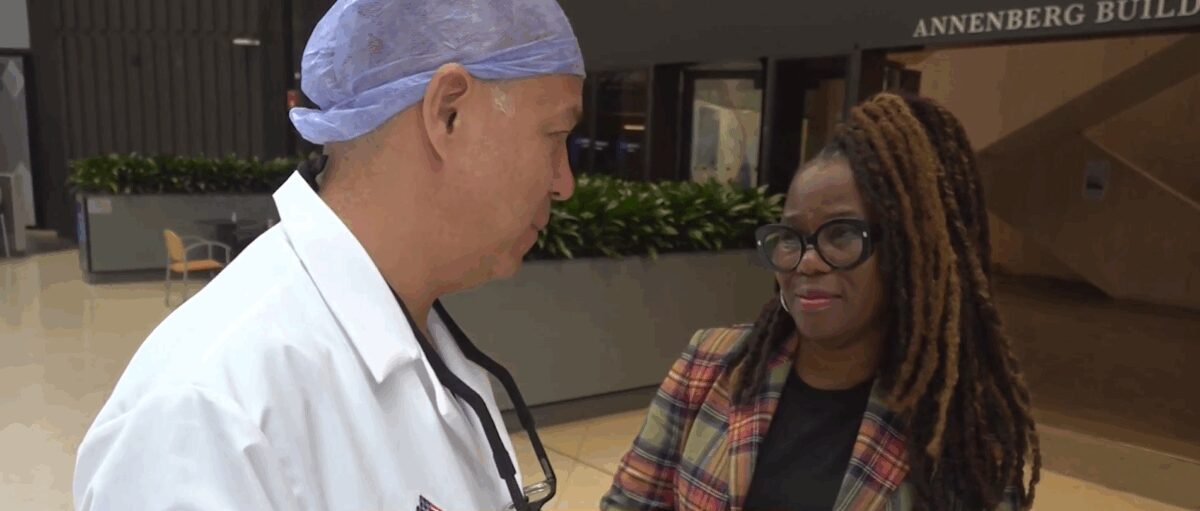She never smoked, then a CT scan found cancer in both lungs. Now she champions early detection for all.

By John Dias
Click here for updates on this story
NEW YORK CITY, New York (WCBS) — A New York City woman is using her lung cancer survival story to push for early detection, especially among nonsmokers and those in underserved communities.
Colette Smith of the Bronx wrote a message of hope and unity on a kindness tree inside the Mount Sinai Tisch Cancer Center in Manhattan, a place that once held her darkest fears, but also saved her life.
“My thought was, I am going to die, my son is 9 years old,” she said.
Health problems no one could explain
Eleven years ago, Smith, who never smoked, said she started having health problems that no one could explain. She kept pushing for answers before a CT scan revealed suspicious spots on both of her lungs.
It was cancer.
“It started with an outpatient procedure here at Mt. Sinai,” she said. “Low and behold, there was some buggers hanging out.”
Dr. Andrew Kaufman, a thoracic surgeon, vice chairman, and associate professor of thoracic surgery at Mt. Sinai, said Smith was lucky her cancer was caught early and doctors could operate.
“The earlier that we find lung cancer, the higher chance of cure, and if we find it very early, it’s at least 80-90% curable,” Kaufman said.
Data proves why early detection matters
Fewer than 1 in 6 lung cancer patients are diagnosed at the earliest, most treatable stage, according to the Lung Cancer Foundation of America.
The five-year survival rate is just 27%. When detected early, however, the rate could double.
Doctors say new technology is changing the odds, detecting lung cancer earlier and giving patients a better chance at survival.
Smith’s cancer is now considered cured because of her operation, made possible by early detection.
“Lung cancer is not a death sentence” As a cancer patient advocate, Smith appears on podcasts to spread awareness.
She is also starting a grassroots initiative called “Healing the Bronx,” dedicated to improving health outcomes through education, art and community love.
“Lung cancer is not a death sentence. There’s life after lung cancer,” she said.
Doctors say anyone age 50 or older, or anyone with risk factors, should talk to their health care provider about getting a CT scan.
This story was provided to CNN Wire by an affiliate and does not contain original CNN reporting.
Please note: This content carries a strict local market embargo. If you share the same market as the contributor of this article, you may not use it on any platform.